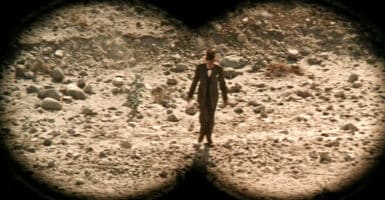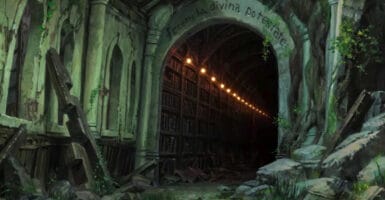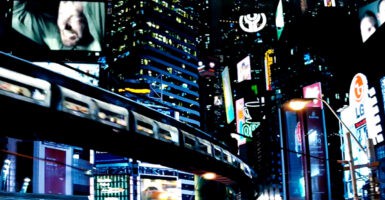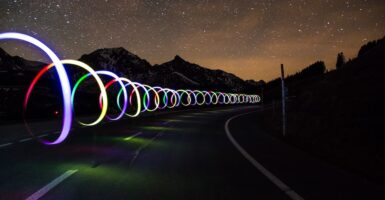Book Review: Ben Bova’s Farside Is Lifeless
It's hard to make living on the moon uninteresting.
This article is more than 2 years old
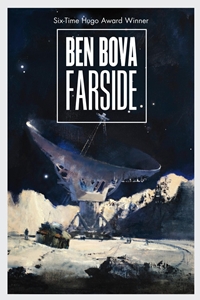 Here’s what we know about the moon: It is grey. It is lifeless. There doesn’t seem to be much depth to it. It exists in the vacuum of space, and it is important to life here on Earth. Here’s what I took away from Ben Bova’s book, Farside. It is set on the moon. It is grey. It is lifeless. There isn’t much depth to it. It exists in the vacuum of the Grand Tour Series, and it is important to the life that exists inside that series.
Here’s what we know about the moon: It is grey. It is lifeless. There doesn’t seem to be much depth to it. It exists in the vacuum of space, and it is important to life here on Earth. Here’s what I took away from Ben Bova’s book, Farside. It is set on the moon. It is grey. It is lifeless. There isn’t much depth to it. It exists in the vacuum of the Grand Tour Series, and it is important to the life that exists inside that series.
Let’s dig into why the book doesn’t stun. Just like a typical Ben Bova book, the chapters are short, usually around five pages. Anything longer than that is practically a tome. The story is about a lunar colony located, you guessed it, on the far side of the moon. To get data from a distant planet, competing labs are racing to construct telescopes and instruments for measuring spectra. The planet has the right size (Earth-sized), it is the correct distance from its star, and the competition is on to get data that will confirm life on the planet. Instead of focusing on the scientific and logistical marvel of having a colony on the moon, the concept is simply understood by the author as a given and not a lot of interest is shown in it. The focus is given instead to the internecine politics of the various scientists, their desire for scientific prestige, and their drive to be the first to discover life.
The real tragedy here is that this could have been a groundbreaking science fiction book. All the elements are there: a place we’re all familiar with, a time set in the near future (so it doesn’t get all Back to the Future Part II on us), and an environment that has the dramatic tension already built in. Instead of telling a scientific drama with layers (akin to my personal favorite 2001: A Space Odyssey by Arthur C. Clarke), it takes a lazier approach and focuses on the politics first and the dramatic setting second. The fact that it is based on a lunar colony is almost an aside to the story, and that is a shame.
It all hearkens back to what draws us to science fiction in the first place: a desire to explore unfamiliar territory. I realize that I can only speak for myself here, but I love to fathom a place outside of our familiar, day-to-day routine. What is exciting about science fiction is that it allows me an opportunity to visit other planets, other galaxies, other timelines, experienced through my mind’s eye. Farside doesn’t allow me that opportunity, settling instead for in-fighting, politics, and petty squabbles that don’t ever hold my interest nearly as much as, oh, I don’t know… living on the other side of the moon.
To be totally fair to Mr. Bova, there is a murder mystery, and some dramatic tension as the scientists deal with sabotage and espionage, sprinkled throughout the politics. But the real issue of being on a remote colony, removed from life here on Earth, and the loneliness that would entail, is startlingly absent. As you can tell, I was frustrated by the the book, not because of what it was, but because of what it could have been. It could have been great.
You can purchase a copy of Farside via Amazon right here.
